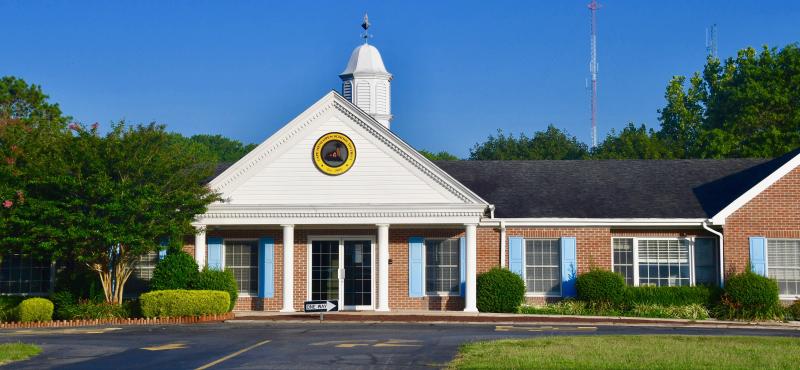School construction fee proposal gets new life
The Cape Henlopen School District is renewing its call for Sussex County to create an impact fee for large housing development projects that are overburdening schools, this time urging the county to reject such plans until a fee is in place.
Jason Hale, the district’s director of operations, raised concerns in a March 21 email sent in response to a request from the Sussex County Planning & Zoning Commission for comment on a zone change for the proposed Belle Mead Farm development.
The project for the horse farm site would create 334 residential units and 26,065 square feet of commercial space on 39 acres off John J. Williams Highway/Route 24 west of Rehoboth Beach.
“The Cape Henlopen School District operates at or near capacity across all of our school facilities,” Hale wrote. “Any additional residential development that results in an increase in student enrollment could significantly impact our ability to provide adequate educational services and space for students.”
The Cape Henlopen district has struggled with growth for years. Enrollment rose from 4,634 students in 2010 to 6,645 at the start of this school year. Thousands of residential building permits issued in recent years indicate the trend will continue, Hale said.
“Given these circumstances, we respectfully recommend that no additional developments be approved until such time that a school construction impact fee or Voluntary School Assessment (VSA) can be implemented,” he continued in his email. “This would allow the district to responsibly plan for and accommodate growth in a way that does not place the financial burden solely on our existing taxpayers.”
At its April 2 meeting, the commission left the record open on the Belle Mead project for 10 days, for the sole purpose of accepting comment on the letter submitted by the school district. The commission’s next meeting will be Wednesday, April 16.
New Castle and Kent counties have for years charged a one-time, per-unit fee for large new residential projects, paid by developers in school districts facing overcrowding.
As Sussex is by far the fastest-growing county in the state, such a fee would have raised millions or tens of millions of dollars in recent years, Hale said. Every dollar from an impact fee is one less that a district has to raise through property taxes, he said.
Sen. Russ Huxtable, D-Lewes, advanced legislation, signed by the governor in September 2023, to clear the way for Sussex County to enact an impact fee. The seven school districts in the county urged approval of a fee, estimated at as low as $7,828 per house in Delmar and Laurel to as high as $15,655 in Cape Henlopen and Indian River districts.
The idea was dismissed in January 2024, as some county council members called the fee a new tax passed on to homebuyers that they believed would be unfair, and they said the state, not the county, is responsible for funding public schools.
Hale said April 4 he believes there is cause for renewed hope for an impact fee after three candidates calling for curbs on development unseated incumbents on the five-member council in the fall elections. During campaigns, the challengers cited concerns about effects of rapid and poorly located growth on schools, roads, emergency services, healthcare and the environment.
Hale said the school district has since begun taking a stronger tack regarding the three most recent projects it was asked to comment on, including the Belle Mead application. It has also held informal discussions with individual council members about an impact fee.
“We are working with the county to get something in Sussex County,” Hale said. “It’s long overdue with the amount of growth in Sussex County.”
This is the second public call this year for a halt to consideration of large residential development proposals. Newly elected District 1 Councilman Matt Lloyd recommended a one-year moratorium on such projects in rural areas to give the council time to craft new ordinances to control growth.
His idea drew opposition from builders, real estate agents, bankers and others. It failed to find support from other council members, and the body decided instead to create the Land Use Reform Working Group to study issues and recommend new rules for the council to consider, a process expected to last beyond the end of this year.
Lloyd said April 4 the working group may consider suggesting a school impact fee.
“We’re looking to the working group and these professionals to make recommendations,” he said.
Cape Henlopen School District held its fourth building referendum in 10 years in 2024 because of continuing development driving up enrollment. A proposal to construct a new administration building and expand the high school was defeated twice last year.
The district plans to try again next year, but even if the public supports the plan, approvals, design and construction will put opening day four to five years away, Hale said.
Lloyd and Councilman Steve McCarron of District 2 said they support an impact fee, but for different reasons. The other council members - Jane Gruenebaum, Douglas Hudson and John Rieley - could not be reached for comment.
Lloyd said the fee would discourage large developments in rural areas that lack services to support them, and it would have the added benefit of funding school expansion.
McCarron said a fee would be fair because it would require newcomers to contribute to the costs of existing school buildings that longtime property owners have been shouldering, and it would help fund expansion to meet needs of new students.
“This is a question of equity,” he said. “There are people who have been living here and paying into retiring debt,” from past building projects, he said.
Lloyd noted there was support for an impact fee as the council discussed its goals for this year.
“I fully believe we will have some movement on this,” McCarron said. “We don’t want to rush it. We want to get it right the first time.”



















































